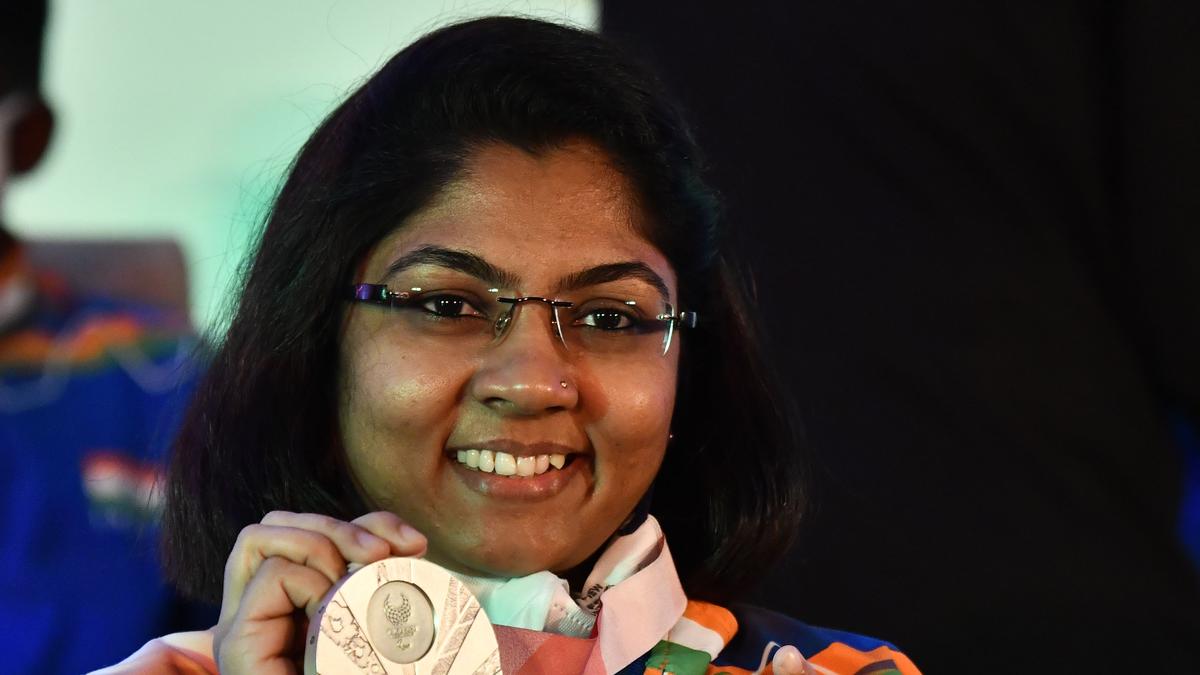People still struggle to accept a wheelchair-bound person as an athlete: Paralympic TT medallist Bhavina Patel
In a little over a month, it’ll be four years since Gujarat’s Bhavina Patel clinched silver in Tokyo and gave India its first medal in table tennis at the Paralympics. Most recently, she bagged two singles gold medals in back-to-back international tournaments in Chinese Taipei. In the second tournament, she took down five-time Paralympic medallist Moon Sung-hye of South Korea in the final.
Bhavina continues to sharpen her skills with major tournaments on the horizon, but feels the current scenario of para table tennis in India leaves much to be desired. The 38-year-old sat down with Sportstar, in between tournaments, to discuss the country’s accessibility issues, her hope for a para UTT, and future coaching aspirations.
Excerpts:
In what ways have things changed for you since that silver medal in 2021 at the Tokyo Paralympics?
I’ve seen how people’s perception changes after you win your country a major medal. Distant relatives have suddenly remembered me. I’ve also stopped shying away from spending on equipment. We’ve also got more social media coverage. Even with my family, they trust me more now.
Do you think if that medal hadn’t come, all these changes would have happened?
No, I don’t think so. Before the medal, no one knew who Bhavina Patel was. Now, the whole world knows. Before the medal, people used to say things like ‘She’s wasting her father’s money’ and ‘What’s the point of doing all this?’. But I had the desire to do something for the country which didn’t let me sleep.
What do you think about para athletes being constantly viewed from the lens of inspiration?
Till people don’t know the level at which we play, the medals we’ve won, and how we have played at the Paralympics, they will think of us as becharas (helpless). Once they know, they salute.
ALSO READ | Sharath Kamal’s dream Table Tennis High Performance Centre to be up and running by August
They can never look at a wheelchair-bound person and think of them as an athlete. Those who don’t have someone like that in their family can never understand what disability is. Awareness campaigns should be run in the country, but I don’t think we can change everyone’s mindset, which is okay. We don’t want people’s sympathy. We might not have a leg or a hand, but we’re mentally very strong and are capable of doing things able-bodied people can’t do.
Whenever we go abroad, there’s a designated road or lane which makes people using a wheelchair feel independent. There’s even a system in place at traffic signals which helps us cross the road. Such things should be introduced in India as well. The government makes lifts and ramps in many buildings for accessibility, but these facilities are not maintained properly. Even the elderly and pregnant people need such requirements, not just us.
You couldn’t recreate your Tokyo performance at the 2024 Paris Paralympics. What do you think went wrong?
I’m happy with my performance. I was playing China’s Ying Zhou in the quarterfinals, and I gave my best. I don’t have any regrets from that tournament. They [Chinese players] never let their strategy leak out. Tactics, facilities, they have everything. It’s their game, they are almost trained like robots.
Recently, you attended the Ultimate Table Tennis (UTT) opening ceremony. Did you speak to the organisers about the possibility of a UTT for para table tennis players?
I spoke to Vita Dani ma’am about possibly starting a UTT for para table tennis players. It’ll give them a platform to show the level of their game. It can also be a confidence booster.
ALSO READ | Patience, strategy and a robot: The rise of new table tennis sensation Divyanshi Bhowmick
After seeing your rise in the sport, are there others from your village who want to take up table tennis and follow your path?
There are many athletes who are coming up in Gujarat, but the stadiums either don’t have a table or are far away. I have tables at my home, and I try to call some of them over for training. That’s my wish — that after my retirement, I will give India an athlete who will go on to play at the Paralympics. I want to establish an academy which will guide athletes from their early stages right till they play the Paralympics. And, I’ll do this without cost because I don’t want them to face the financial hurdles I had to overcome.
What more do you think can be done to help and improve para sports in India?
The government has provided a lot of support through schemes like TOPS, but I feel some of the funding that goes to already established athletes — who have their own sponsors — can go to beginners and those at the grassroots for their support. That can help athletes come up from the remotest of areas as well, across disciplines.


